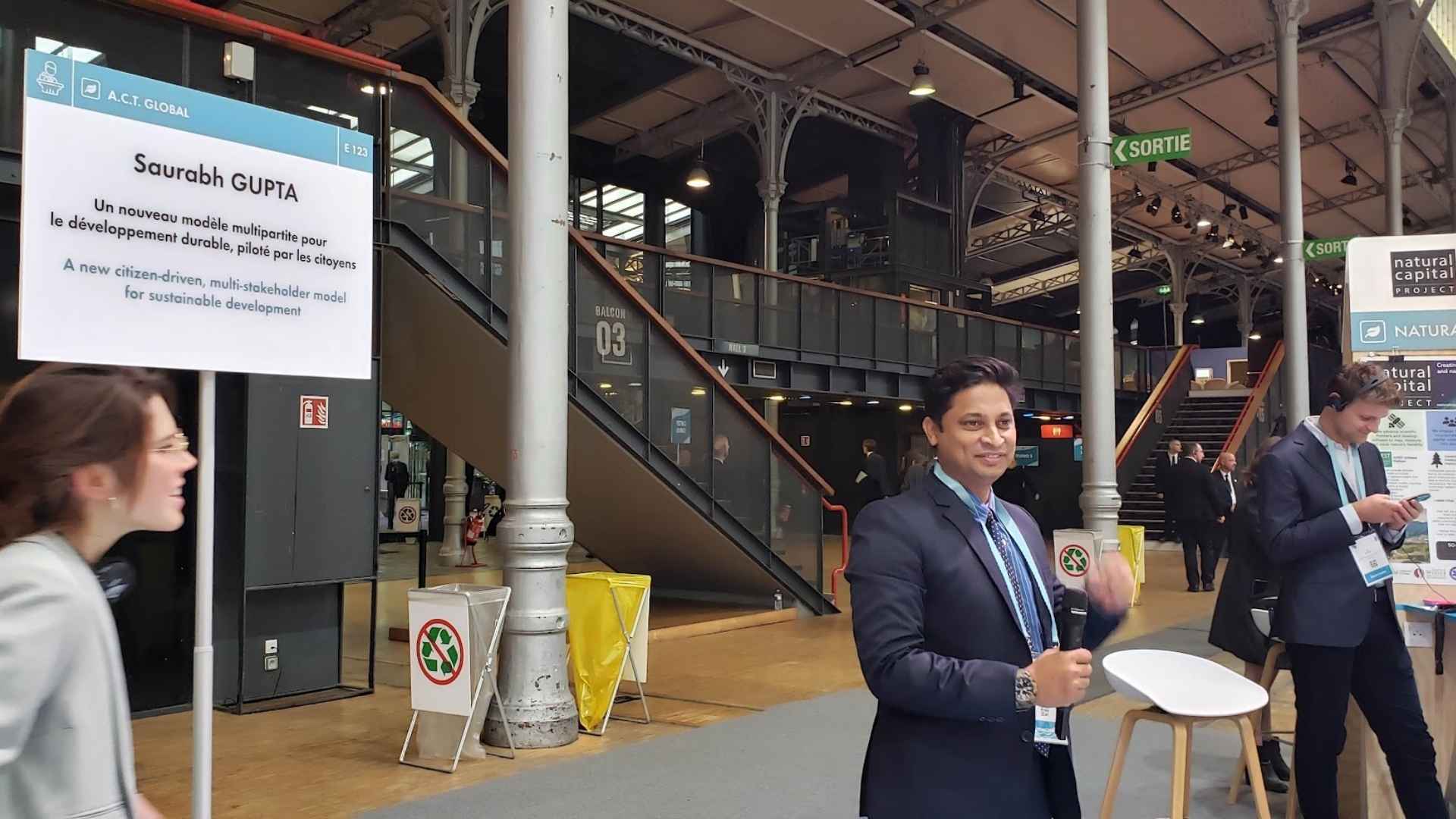Sustainability education is crucial in addressing global environmental challenges such as climate change, biodiversity loss, and resource depletion. It equips individuals with the knowledge, skills, and motivation to adopt sustainable practices in their personal and professional lives.
Research has shown that sustainability education enhances environmental literacy, fosters critical thinking, and promotes behavior change toward eco-friendly choices. By integrating sustainability concepts into educational settings, societies can work toward long-term environmental and social resilience.
Workshops play a significant role in promoting environmental awareness by providing interactive and experiential learning opportunities. Unlike traditional lectures, workshops engage participants in hands-on activities, discussions, and problem-solving exercises that deepen their understanding of sustainability issues.
Studies indicate that participatory learning methods, such as workshops, significantly improve knowledge retention and encourage pro-environmental behavior. These sessions also serve as platforms for networking, collaboration, and the exchange of innovative solutions for sustainable development.
This guide will provide a comprehensive framework for conducting effective sustainability workshops. It will cover essential aspects, including planning, content design, facilitation strategies, hands-on activities, evaluation methods, and overcoming challenges. By the end of this article, readers will have a research-backed understanding of how to organize impactful sustainability workshops that drive real change.
Understanding Sustainability Education
Definition and Principles of Sustainability
Sustainability refers to meeting present needs without compromising the ability of future generations to meet their own. It is built on three core pillars: environmental, social, and economic sustainability.
Environmental sustainability focuses on conserving natural resources and reducing ecological footprints. Social sustainability emphasizes equity, justice, and community well-being, while economic sustainability promotes long-term economic stability without exploiting resources or people.
Sustainability education integrates these principles into learning frameworks, helping individuals understand the interconnectedness of human actions and environmental consequences. It encourages critical thinking, problem-solving, and ethical decision-making to foster a more sustainable society.
The Role of Education in Sustainability Efforts
Education plays a pivotal role in shaping sustainable behaviors and policies. It raises awareness about environmental issues and provides knowledge-based solutions for sustainable living.
UNESCO’s Global Education for Sustainable Development (ESD) framework highlights how education empowers individuals to become sustainability advocates. Schools, universities, and corporate training programs incorporate sustainability into their curricula to cultivate eco-consciousness among students and professionals.
Beyond formal education, community-based initiatives, workshops, and training programs engage diverse audiences in sustainability discussions. These platforms provide hands-on learning experiences, enabling participants to translate theoretical knowledge into practical applications, such as waste reduction, renewable energy adoption, and sustainable business practices.
Scientific Evidence on the Impact of Sustainability Education
Studies show that sustainability education leads to measurable behavioral changes. A 2021 meta-analysis published in Environmental Education Research found that individuals exposed to sustainability education were more likely to adopt eco-friendly habits, such as energy conservation and waste reduction.
Another study by the Journal of Cleaner Production highlighted that sustainability-focused training programs in businesses led to a 20% increase in sustainable workplace practices.
Incorporating sustainability education at all levels of society fosters long-term environmental responsibility, driving systemic change toward a more sustainable world.
Planning a Sustainability Workshop
Effective planning is the foundation of a successful sustainability workshop. A well-structured workshop ensures meaningful engagement, knowledge retention, and practical application of sustainability concepts. This section outlines key considerations for planning an impactful session.
Identifying Objectives and Target Audience
Clearly defining the objectives of the workshop is essential. Objectives should align with the broader goal of sustainability education, such as raising awareness, promoting behavioral change, or teaching practical sustainability skills. For example, a workshop for students may focus on climate change awareness, while a corporate session might emphasize sustainable business practices.
Understanding the target audience—whether students, professionals, community members, or policymakers—helps tailor the content, language, and activities to their knowledge levels and interests. Research in educational psychology suggests that workshops customized to audience needs lead to higher engagement and learning outcomes.
Selecting a Relevant Sustainability Theme
Workshops should focus on specific sustainability themes based on current environmental challenges and audience relevance. Common themes include:
Climate change and carbon footprint reduction
Sustainable consumption and waste management
Renewable energy and energy efficiency
Circular economy and upcycling
Sustainable agriculture and food systems
Choosing a theme with real-world applicability increases participants’ motivation to implement what they learn. Scientific studies suggest that thematic learning improves information retention and encourages long-term behavioral change.
Choosing the Right Format
The effectiveness of a sustainability workshop depends on its format. Options include:
Lectures and presentations – Ideal for introducing concepts but should be supplemented with interactive elements.
Hands-on activities and experiments – Engaging and effective in reinforcing key messages.
Group discussions and problem-solving exercises – Encourage critical thinking and collaboration.
Case studies and storytelling – Help illustrate real-world applications and success stories.
Blended approaches—combining different formats—enhance learning by catering to diverse learning styles.
Research-Backed Strategies for Effective Workshop Planning
Studies in pedagogy highlight several best practices for designing impactful workshops:
Active learning methods: A study in the Journal of Environmental Education found that hands-on activities improve knowledge retention by 75% compared to passive learning.
Behavioral science insights: Research in behavioral change suggests that personalizing sustainability topics (e.g., showing participants their individual carbon footprint) leads to stronger commitment.
Incorporating feedback loops: Regular participant feedback during and after the workshop helps refine content for future sessions.
A well-planned sustainability workshop ensures participants not only understand sustainability principles but also feel empowered to take actionable steps toward a greener future.
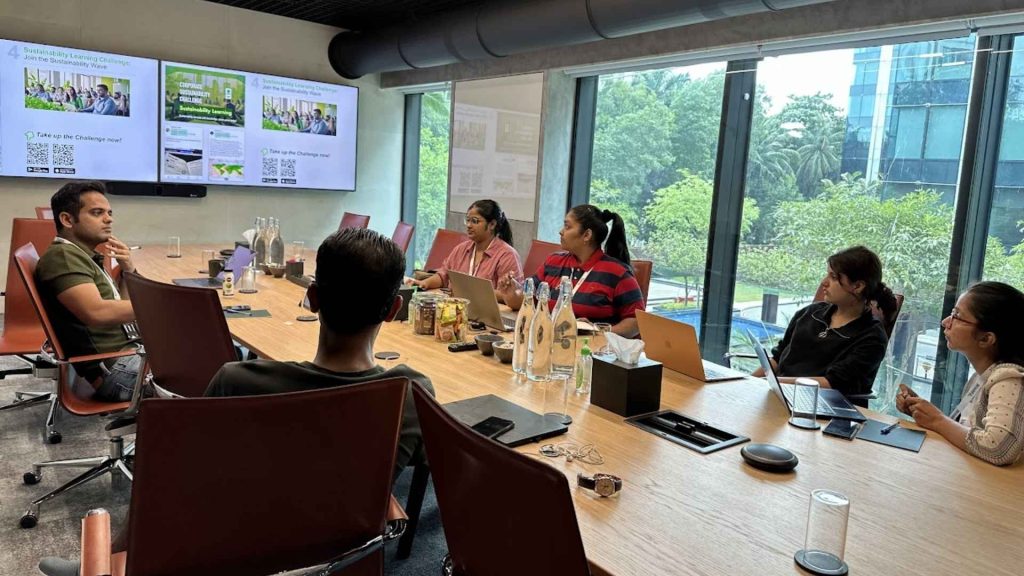
Designing Engaging Workshop Content
Creating engaging and impactful content is essential for a successful sustainability workshop. A well-structured session, enriched with interactive elements, storytelling, and digital tools, enhances participant engagement and ensures lasting learning outcomes.
Structuring the Session (Introduction, Activities, Conclusion)
A sustainability workshop should follow a structured format to maintain flow and engagement:
Introduction – Set the stage by introducing the topic, objectives, and relevance of sustainability. Use attention-grabbing statistics or thought-provoking questions. Research from the Journal of Environmental Psychology suggests that framing sustainability in a personal and relatable way increases engagement.
Main Activities – The core learning phase, where participants engage with concepts through interactive methods such as group discussions, role-playing, and hands-on experiments.
Conclusion – Summarize key takeaways, encourage reflection, and provide actionable steps. Behavioral science studies indicate that a strong call-to-action enhances long-term commitment to sustainability practices.
Using Storytelling and Case Studies
Scientific research shows that storytelling increases information retention and emotional connection to a topic. Case studies, such as companies successfully implementing zero-waste policies or cities transitioning to renewable energy, make abstract sustainability concepts tangible.
A study published in Frontiers in Psychology found that narratives evoke empathy and motivate individuals to adopt sustainable behaviors.
Incorporating Interactive Elements
Engaging workshops prioritize participation. Effective interactive methods include:
Group discussions – Encourage idea exchange and critical thinking.
Sustainability games – Gamification has been shown to enhance learning motivation.
Experiments and simulations – Hands-on activities, such as carbon footprint calculators, make sustainability issues more relatable.
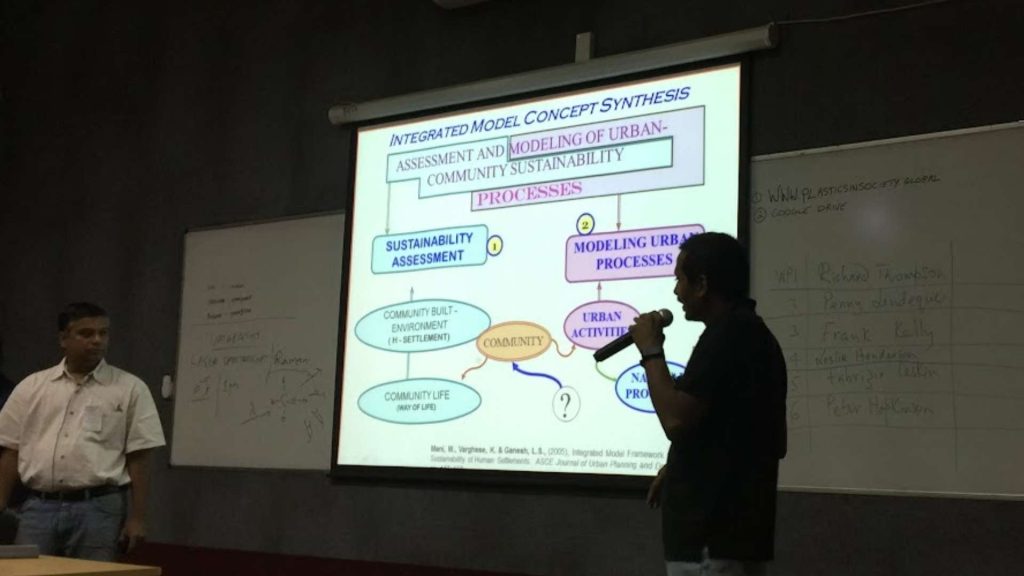
Effective Use of Visual Aids and Digital Tools
Research suggests that visual aids improve comprehension and engagement. Use:
Infographics and videos to simplify complex sustainability concepts.
Digital tools like interactive quizzes and real-time polling to boost participation.
Virtual reality (VR) and augmented reality (AR) to create immersive experiences.
By integrating these elements, workshops become more engaging, memorable, and impactful in fostering sustainable mindsets.
Facilitating the Workshop Effectively
Facilitating a sustainability workshop requires more than just delivering content—it involves actively engaging participants, fostering open discussions, leveraging behavioral science insights, and addressing resistance to sustainability topics. A well-facilitated workshop ensures participants leave with both knowledge and motivation to take action.
Best Practices for Engaging Participants
To keep participants actively involved, facilitators should:
Set an inclusive and welcoming tone – Encourage participation from all attendees by creating a non-judgmental space where diverse viewpoints are respected.
Use real-world examples and storytelling – Relating sustainability concepts to everyday life makes them more accessible and impactful. Research from Frontiers in Psychology suggests that narratives improve emotional connection and knowledge retention.
Incorporate hands-on activities – Experiential learning methods, such as DIY composting or interactive carbon footprint calculations, enhance engagement and reinforce concepts effectively.
Encourage collaboration – Group-based exercises, role-playing, and team challenges improve learning outcomes and inspire collective problem-solving.
Handling Questions and Fostering Discussions
Encouraging active discussions and handling questions effectively helps deepen understanding. Facilitators can:
Encourage curiosity and debate – Use open-ended questions to prompt critical thinking (e.g., “How do you think your community can reduce plastic waste?”).
Address misconceptions with scientific evidence – Sustainability topics can be misunderstood. Providing credible sources and real-world examples helps clarify doubts.
Use structured discussion formats – Techniques like the “Think-Pair-Share” model (where participants reflect individually, discuss in pairs, then share with the group) enhance engagement.
Scientific Research on Behavioral Change and Effective Communication
Behavioral science research provides valuable insights into how people adopt sustainable behaviors:
Framing sustainability positively – A study in Nature Climate Change found that emphasizing benefits (e.g., cost savings from energy efficiency) is more persuasive than focusing on environmental threats.
Leveraging social norms and peer influence – According to Behavioral and Brain Sciences, people are more likely to adopt sustainable behaviors when they see others doing the same (e.g., “Most people in your neighborhood recycle regularly”).
Providing small, achievable steps – Research suggests that breaking sustainability actions into small, manageable steps increases long-term adherence.
Overcoming Resistance to Sustainability Topics
Some participants may be skeptical or resistant to sustainability discussions. Strategies to address this include:
Acknowledge concerns without dismissing them – Listening empathetically builds trust.
Use data-driven arguments – Presenting scientific evidence can counter misinformation.
Avoid guilt-based messaging – Studies show that positive reinforcement (e.g., highlighting successful sustainability efforts) is more effective than fear-based appeals.
By applying these facilitation strategies, sustainability workshops can inspire meaningful discussions, promote behavioral change, and drive long-term commitment to sustainable practices.
Hands-On Activities and Experiments
Hands-on activities are essential in sustainability workshops as they allow participants to engage with concepts in a tangible way. Research suggests that experiential learning significantly improves knowledge retention and encourages behavior change. By incorporating interactive exercises, workshops can effectively demonstrate real-world applications of sustainability principles.
Examples of Practical Sustainability Activities
Composting Demonstration – Teach participants how to turn food scraps into nutrient-rich compost. This activity highlights waste reduction and soil health improvement.
Carbon Footprint Tracking – Have participants calculate their carbon footprint using an online calculator. This raises awareness of individual contributions to climate change and suggests ways to reduce emissions.
Upcycling Workshop – Guide participants in repurposing old materials into useful products (e.g., turning old T-shirts into tote bags or using glass jars as plant pots). This promotes the circular economy and reduces waste.
Energy Conservation Challenge – Simulate energy consumption by measuring the power usage of household appliances and discussing energy-efficient alternatives.
Sustainable Product Comparison – Provide different products and analyze their environmental impact (e.g., plastic vs. biodegradable packaging).
Demonstrating Real-World Applications
Sustainability workshops should emphasize real-world impact by connecting activities to daily life. For instance, composting can reduce landfill waste by 50%, and switching to reusable products can cut down single-use plastic pollution significantly. Showing successful community or corporate sustainability initiatives reinforces the practicality of these actions.
The Impact of Experiential Learning
Studies highlight that hands-on learning improves information retention by 75% compared to passive learning methods. According to The Journal of Environmental Education, participants who engage in sustainability experiments are more likely to adopt eco-friendly habits long-term.
Additionally, research in Applied Environmental Education & Communication found that workshops incorporating active participation lead to a higher rate of post-event engagement, such as policy advocacy and sustainable lifestyle changes.
By integrating hands-on activities, sustainability workshops become more engaging, educational, and impactful in fostering real-world sustainable behaviors.
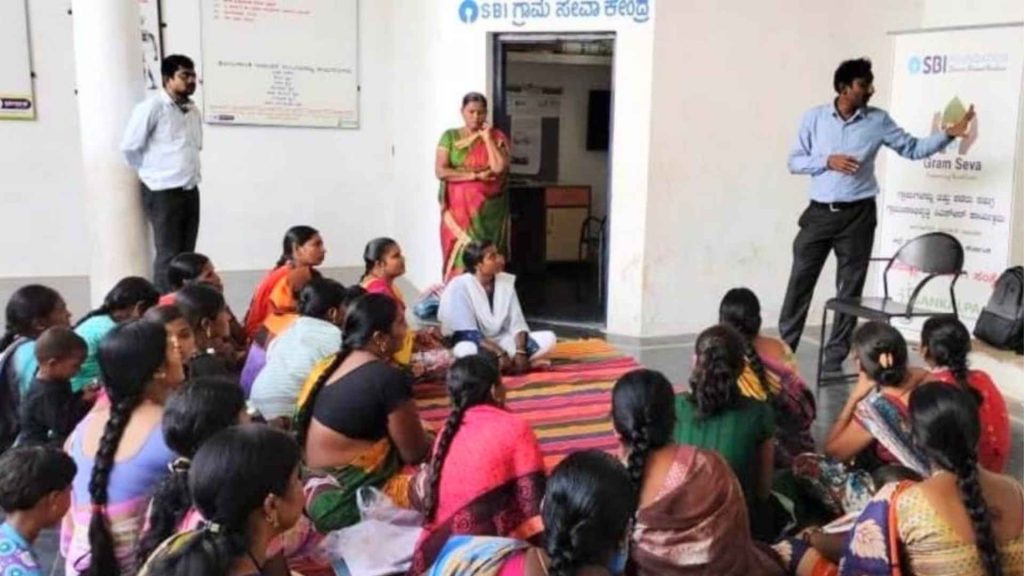
Measuring Workshop Effectiveness
Assessing the effectiveness of a sustainability workshop is essential to ensure that participants gain valuable knowledge and are motivated to take action. A research-driven evaluation framework helps facilitators refine their approach and maximize impact.
Pre- and Post-Workshop Assessments
Conducting assessments before and after the workshop helps measure learning outcomes and behavioral change.
Pre-workshop assessment – Gauge participants’ baseline knowledge, attitudes, and practices related to sustainability. This can be done through surveys, quizzes, or interactive discussions.
Post-workshop assessment – Measure knowledge gained, shifts in attitudes, and intent to adopt sustainable practices. Studies from The Journal of Environmental Psychology indicate that self-reported behavioral intentions are strong predictors of actual change.
Long-term follow-ups – Checking in with participants weeks or months later can help assess whether workshop lessons have translated into real-world actions.
Gathering Feedback and Making Improvements
Participant feedback is crucial for refining future workshops. Effective methods include:
Surveys and feedback forms – Ask attendees about what they found useful, what could be improved, and any challenges they foresee in implementing sustainable practices.
Focus groups and discussions – Provide qualitative insights into how participants perceive the workshop’s relevance and effectiveness.
Facilitator observations – Monitoring engagement levels during activities can help identify which elements are most effective.
Key Performance Indicators (KPIs) for Sustainability Education
To measure success, facilitators can track:
Knowledge retention rates – Percentage of correct responses in post-workshop quizzes.
Behavioral change indicators – Number of participants adopting sustainable habits (e.g., reducing plastic use, composting at home).
Engagement metrics – Participation levels in discussions and activities.
Community impact – Initiatives started by participants after the workshop (e.g., workplace sustainability programs, policy advocacy).
Successful Sustainability Workshops by Earth5R: Case Studies of Impactful Environmental Action
Earth5R, a prominent environmental organization, has implemented numerous sustainability workshops that have made significant impacts across various sectors. Below are detailed case studies highlighting some of their successful initiatives:
Plastic Recycling Program with Lufthansa Help Alliance
In collaboration with Lufthansa Group’s Help Alliance, Earth5R organized a beach cleanup in Mumbai, addressing the critical issue of plastic pollution. This initiative not only restored the beach’s natural beauty but also raised awareness about the detrimental effects of plastic waste on marine ecosystems.
The program emphasized community involvement, educating participants on the importance of reducing plastic usage and promoting recycling practices.
Mithi River Plastic Waste Cleaning and Management
Earth5R undertook a comprehensive project focused on the Mithi River, which had been severely polluted due to unchecked plastic waste. The organization implemented a structured cleanup and management plan, involving local communities in waste segregation and recycling efforts.
This project not only improved the river’s health but also educated residents on sustainable waste management practices, fostering a culture of environmental responsibility.
Environmental Workshops in Educational Institutions
Recognizing the importance of early education in sustainability, Earth5R conducted hands-on workshops in schools, focusing on waste management and upcycling. Students participated in month-long projects aimed at transforming their homes into zero-waste environments, culminating in project reports and environmental certifications.
This initiative empowered students to become environmental stewards, extending sustainable practices beyond the classroom.
Circular Economy Workshops for Corporates
Earth5R designed workshops to educate companies about integrating circular economy principles into their operations. These sessions provided insights into sustainable business models, emphasizing the benefits of eco-innovation.
By showcasing global case studies, Earth5R demonstrated how adopting sustainable practices can lead to increased profitability and market expansion, encouraging businesses to rethink their environmental strategies.
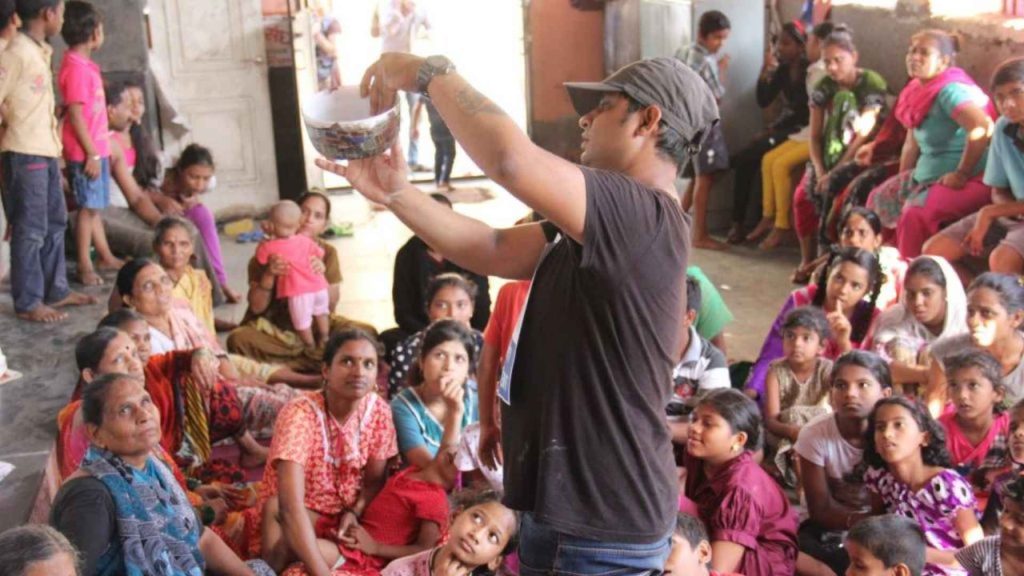
Community-Based Ecosystem Restoration
Earth5R engaged local citizens in weekly lake cleanup and plantation events, aiming to restore and sustain local ecosystems. Each plantation event resulted in the addition of approximately 800 trees, enhancing the area’s green cover. These activities not only improved environmental health but also fostered community bonding and a shared sense of responsibility toward nature conservation.
Skill Development Workshops via the Earth5R App
Leveraging technology, Earth5R launched an environmental app offering webinars and courses on topics like climate change and renewable energy. This platform provided users with valuable skills and knowledge, encouraging them to participate in sustainability initiatives.
The app also featured a research center and an automated resume builder, supporting users’ professional development in the environmental sector.
Sustainable Livelihood Projects in Paris
Through the A.C.T. (Action, Collaboration, Transformation) project, Earth5R aimed to transform Parisian localities into green, zero-waste communities. This citizen-led initiative focused on developing sustainable livelihood models, demonstrating the organization’s commitment to global environmental improvement.
These case studies illustrate Earth5R’s multifaceted approach to sustainability education and action, highlighting the organization’s ability to adapt and implement effective environmental strategies across diverse contexts.
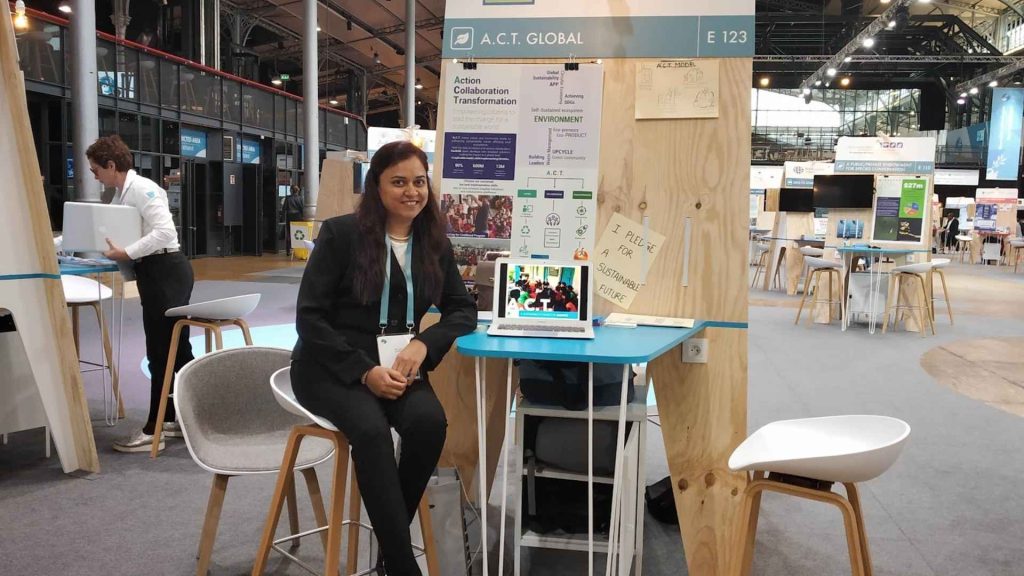
Challenges and Solutions in Conducting Sustainability Workshops
Despite the growing importance of sustainability education, workshops often face several challenges that can hinder their effectiveness. These include lack of participant interest, misinformation, and logistical constraints. However, research-backed strategies can help overcome these obstacles and enhance workshop impact.
Common Roadblocks
Lack of Interest and Engagement
Some participants may view sustainability as irrelevant to their daily lives or feel that their actions won’t make a significant difference.
Research from Environmental Education Research shows that disengagement often stems from a lack of personal connection to sustainability topics.
Misinformation and Skepticism
Misconceptions about climate change, renewable energy, or sustainable practices can lead to resistance.
A 2022 study in Nature Climate Change found that misinformation, especially on social media, significantly reduces public trust in environmental science.
Logistical Issues
Limited budgets, lack of resources, or difficulties in organizing hands-on activities can restrict workshop effectiveness.
Scheduling conflicts and low attendance rates can also impact participation.
Research-Based Solutions and Best Practices
Boosting Interest and Engagement
Personalization – Studies show that framing sustainability in a way that connects with participants’ values (e.g., cost savings, health benefits) increases engagement.
Gamification and interactive learning – Using sustainability games, competitions, and hands-on experiments has been proven to enhance motivation and retention.
Combating Misinformation
Fact-based storytelling – Presenting scientific data through compelling narratives improves credibility and emotional impact.
Encouraging critical thinking – A study in Science Communication found that workshops that teach participants how to identify misinformation result in higher trust in sustainability science.
Overcoming Logistical Barriers
Leveraging digital tools – Online workshops and virtual reality (VR) experiences can help when physical resources are limited.
Community partnerships – Collaborating with local organizations or businesses can provide funding, venues, and materials.
By addressing these challenges with evidence-based solutions, sustainability workshops can be more impactful, ensuring participants leave with both knowledge and motivation to take action.
Scaling and Sustaining Impact
For sustainability workshops to have a lasting impact, it is essential to go beyond a one-time event and create long-term engagement. By fostering a community of advocates, leveraging digital platforms, and forming strategic partnerships, facilitators can ensure that sustainability education continues to inspire action over time.
Encouraging Long-Term Engagement
Workshops should empower participants to integrate sustainability into their daily lives. Research in Behavior and Information Technology suggests that continued engagement through follow-ups and challenges increases the likelihood of sustained behavior change. Strategies include:
Follow-up sessions – Organizing periodic discussions or check-ins to reinforce learning.
Action pledges – Having participants commit to specific sustainability goals (e.g., reducing plastic use, adopting energy-efficient habits).
Real-world applications – Encouraging workplace or community projects based on workshop lessons.
Building a Community of Sustainability Advocates
Sustainability efforts are more effective when supported by a network. Creating a community allows participants to share successes, challenges, and ideas. Ways to foster community engagement include:
Alumni networks – Establishing a group for past participants to exchange insights and collaborate.
Peer mentorship programs – Pairing experienced sustainability advocates with newcomers to maintain motivation.
Hosting sustainability events – Organizing meetups, clean-up drives, or eco-friendly initiatives to keep participants engaged.
Leveraging Social Media and Digital Platforms
Digital tools amplify the reach and impact of sustainability workshops. Research in Digital Environmental Communication highlights that online engagement increases awareness and action. Best practices include:
Creating an online community – Using platforms like Facebook, LinkedIn, or Discord for continued discussions.
Sharing workshop outcomes – Posting success stories, participant testimonials, and sustainable practices to inspire others.
Hosting webinars and live Q&As – Offering virtual sessions to keep sustainability conversations active.
Partnering with Schools, Businesses, and Local Organizations
Collaborations expand the reach of sustainability workshops and provide additional resources. Effective partnerships include:
Schools and universities – Integrating sustainability into curricula and student activities.
Businesses – Encouraging corporate sustainability programs and employee training.
Local governments and NGOs – Partnering on community initiatives, policy advocacy, and funding opportunities.
By scaling efforts through engagement, technology, and partnerships, sustainability workshops can drive lasting change and inspire a global movement toward a greener future.
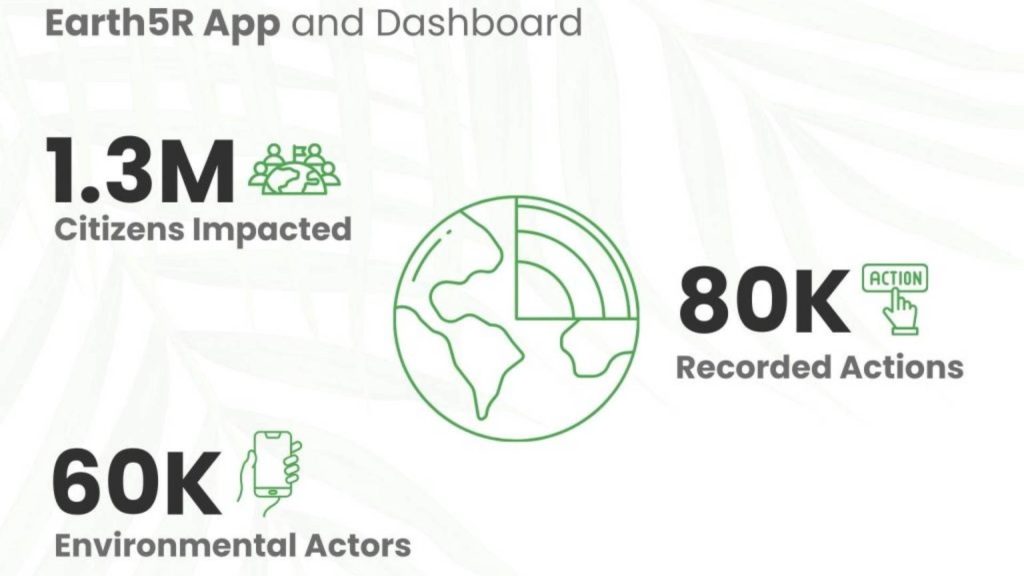
Driving Lasting Change Through Sustainability Education
Sustainability workshops play a crucial role in educating individuals and communities about environmental responsibility and driving meaningful behavioral change. By using research-backed strategies, interactive learning methods, and long-term engagement techniques, these workshops can have a lasting impact on participants and the broader society.
Recap of Key Takeaways
Throughout this guide, we have explored the essential elements of conducting effective sustainability workshops:
Understanding Sustainability Education – Scientific research highlights the importance of education in fostering pro-environmental behavior.
Planning and Designing Engaging Content – Structuring sessions with interactive elements, storytelling, and real-world applications improves knowledge retention.
Facilitating Effectively – Best practices, including evidence-based communication strategies, help engage participants and address resistance.
Hands-On Activities – Experiential learning, such as composting and carbon footprint tracking, enhances learning outcomes.
Measuring Impact – Using assessments, feedback, and key performance indicators (KPIs) ensures continuous improvement.
Scaling and Sustaining Impact – Leveraging digital platforms, community-building, and partnerships enhances long-term engagement.
Future Directions in Sustainability Education
The field of sustainability education is continuously evolving, with new trends and opportunities emerging:
Technology-driven learning – Virtual reality (VR), augmented reality (AR), and AI-powered simulations are transforming sustainability education.
Behavioral science integration – Understanding human psychology can further improve the effectiveness of sustainability messaging.
Policy and institutional support – Governments and organizations are increasingly prioritizing sustainability education, leading to expanded funding and programs.
By embracing these advancements and fostering collaboration, sustainability workshops can continue to inspire action and drive a more sustainable future.
FAQs on The Complete Guide to Conducting Sustainability Workshops
What is a sustainability workshop?
A sustainability workshop is an interactive educational session designed to promote awareness and action on environmental issues, such as climate change, waste management, and sustainable living.
Why are sustainability workshops important?
These workshops help individuals, businesses, and communities understand the importance of sustainable practices and provide practical solutions to environmental challenges.
Who can conduct a sustainability workshop?
Educators, environmental professionals, NGOs, corporate sustainability teams, and community leaders can conduct these workshops.
What topics can be covered in a sustainability workshop?
Topics include renewable energy, waste management, carbon footprint reduction, sustainable consumption, circular economy, and climate action.
How do you identify the objectives of a sustainability workshop?
Objectives should align with the target audience’s needs and focus on knowledge-sharing, behavior change, or policy advocacy.
What are the different formats of sustainability workshops?
They can be lectures, hands-on activities, panel discussions, webinars, or outdoor experiential learning sessions.
How long should a sustainability workshop last?
The duration depends on the depth of content, ranging from a few hours for introductory sessions to multi-day workshops for in-depth learning.
What are some effective strategies for planning a sustainability workshop?
Research suggests that interactive sessions, real-world applications, and behavior-change models improve engagement and retention.
How can facilitators make sustainability workshops engaging?
Using storytelling, gamification, group discussions, and hands-on activities increases participant engagement.
What are some common challenges in conducting sustainability workshops?
Challenges include participant disinterest, misinformation, logistical constraints, and resistance to behavior change.
How can misinformation about sustainability be addressed in workshops?
Presenting scientific evidence, using credible sources, and encouraging critical thinking help combat misinformation.
How can resistance to sustainability topics be overcome?
Making sustainability personally relevant (e.g., cost savings, health benefits) and using real-life success stories can help.
What are some hands-on activities for sustainability workshops?
Activities include composting, upcycling, carbon footprint tracking, waste audits, and renewable energy demonstrations.
How effective is experiential learning in sustainability workshops?
Research shows that hands-on learning improves retention rates and motivates long-term behavior change.
How can the effectiveness of a sustainability workshop be measured?
Using pre- and post-assessments, participant feedback, and long-term behavior tracking are effective evaluation methods.
What key performance indicators (KPIs) should be tracked?
KPIs may include knowledge retention, behavioral change metrics, community impact, and engagement levels.
How can sustainability workshops have a lasting impact?
By fostering ongoing engagement, forming sustainability networks, and integrating digital tools, workshops can ensure long-term impact.
How can social media help in sustainability education?
Social media amplifies awareness, engages participants, and encourages knowledge-sharing beyond the workshop.
What role do businesses play in sustainability workshops?
Businesses can organize employee sustainability training, implement corporate responsibility initiatives, and support environmental causes.
How can partnerships with schools and organizations enhance sustainability education?
Collaborating with educational institutions, businesses, and NGOs can provide resources, expand outreach, and reinforce sustainability initiatives.
These FAQs provide a comprehensive overview of sustainability workshops, offering insights for educators, facilitators, and organizations looking to implement impactful sustainability programs.
Call to Action for Educators, Organizations, and Individuals
Sustainability education is a collective effort that requires action from multiple stakeholders:
Educators – Integrate sustainability topics into curricula and workshops to inspire the next generation of environmental stewards.
Organizations and Businesses – Implement employee training programs and sustainability initiatives to promote eco-friendly workplace practices.
Individuals – Participate in sustainability workshops, adopt sustainable habits, and spread awareness within personal and professional networks.
~Authored by Ameya Satam

